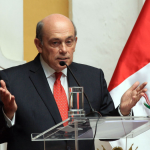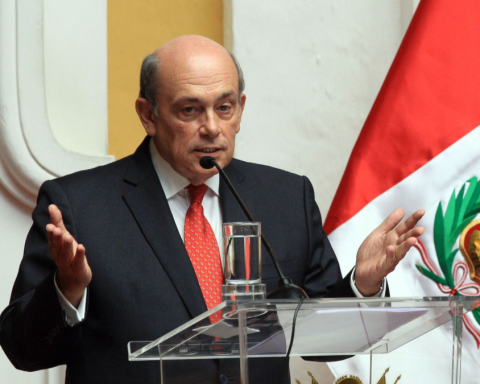In a public event, in the middle of the celebration of a Christmas novena in Zipaquirá (Cundinamarca), the Colombian president, Gustavo Petro, announced that The minimum wage for next year will rise 9.54%.
(Read: How much was the minimum and maximum that the salary could increase if an agreement was not reached).
In this way, it will increase by 123,500 pesos and will remain at 1,423,500 pesos without transportation assistance as of January 1st. With transportation assistance, the total salary will be 1,623,500 pesos; That is, the transportation aid increased by 200,000 pesos.
According to the head of state, Inflation estimates for the end of the year are 5%, while food price growth will be 2.7%.
“Colombia is going to grow more if there is dignity for working people, if there is income higher than inflation and people’s standard of living grows, if we can get many more people out of hunger. I raised the minimum wage in 2022 to 16% and the consequence was that 1,600,000 people throughout Colombia came out of hunger, and 1,100,000 came out of extreme poverty. “We have taken people out of poverty and hunger, and the minimum wage has been increasing.”Petro stated about the reasons that led to the adjustment this year.
He further maintained that “we have grown in real minimum wage in Colombia by 30-35% in the three years we have had it”.
“If the minimum wage grows, it makes the economy grow, not the other way around, it is not with slave workers, how the economy of a country grows, it is with workers who earn, who have dignity in their lives. That mentality of believing that workers have to be… pic.twitter.com/HuFj4OXEV8
— Colombian Presidency 🇨🇴 (@infopresidencia) December 24, 2024
“If the minimum wage grows, it makes the economy grow, not the other way around, it is not with slave workers, how the economy of a country grows, it is with workers who earn, who have dignity in their lives. “This mentality of believing that workers have to be slaves, that is why they have been preventing the Labor Reform from being approved, does not serve Colombia, it has condemned us to misery, to being the most socially unequal society in the world,” he added.
(Here: Credicorp’s forecasts for the Colombian economy: how does 2025 ‘look’?).
President Petro unilaterally decreed the salary increase after the tripartite table, made up of businessmen, labor unions and the Government, failed to reach an agreement in the extraordinary sessions.
Following the Government’s announcement, Fabio Arias, president of the Unitary Central of Workers of Colombia (CUT), celebrated the 9.54% increase in the value of the minimum wage.
“Really important and significant figures! This is a key step to reduce the serious wage gap that neoliberal governments left us. We are moving forward!”Arias said in a message.
He also highlighted that the transportation aid increased by more than 200 thousand pesos, which means an average increase of 11% compared to last year.
For his part, Jaime Alberto Cabal, president of Fenalco, a union that represents the country’s merchants, said that the 9.54% increase decreed by the Government does not take into account the economic reality of the country.
“An increase of this magnitude will impact job creation, affect jobs that already exist and increase informality”Cabal said.
He also added that “workers celebrate that they will have higher incomes but they do not think that they will also have higher costs, as a consequence of the indexation of products and services”.
(Here: The Latin American country that eliminated Christmas from its calendar more than 100 years ago).
Cabal maintained that with this increase and if the labor reform prospers, companies in Colombia will collapse.
The union spokesperson considered that the disproportionate increase in the minimum wage is a new and powerful reason that the Congress of the Republic will have to vote negatively on the labor reform project promoted by the Ministry of Labor.
“It is a shot in the foot to decree such a strong increase in the minimum wage because congressmen will be aware that raising labor costs even further would put micro, small and medium-sized businesses in serious danger. In addition, the fiscal outlook will become even more complicated. more by strongly increasing state payroll expenses, and as if that were not enough, the Bank of the Republic will be much more cautious in reducing interest rates. Without a doubt, the decision threatens the economic stability of the country.stressed the leader.
He added that in this scenario and taking into account that the labor reform is being processed in Congress, the costs for companies would be unsustainable.
PORTFOLIO

















